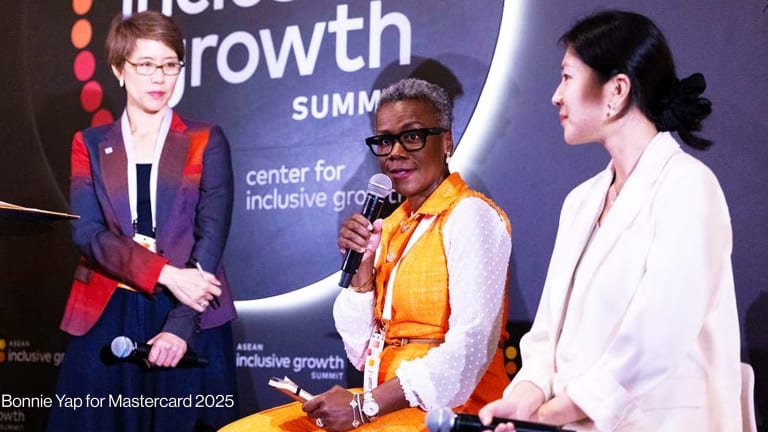
Two of the most unforgiving elements of any infectious disease outbreak are information and time. Access to the right information, at the right time, is critical in a global health crisis like the one presented by COVID-19. Despite significant improvements since early 2020, many of the world’s epidemiologists are still lacking one or both of these elements in their fight against the current pandemic.
To address this challenge, every entity involved in infectious disease response must be fully committed to interdisciplinary collaboration and continued investment in diverse talent and data-driven technology. With these components centered in the work, this approach will almost always ensure a more equitable and efficient result.
To succeed in this effort, my data.org colleagues and I believe the work must be intentionally performed with respect for the humanity connected to the technology, and it must be deliberately informed by it.
This begins with something we call “sovereignty over software” — giving countries global access to a shared technological infrastructure and turning it into a digital public good. When we empower data scientists around the world with these kinds of shared, open-source technologies, we will increase timely information and analysis, while also improving critical response efforts within low- and middle-income countries.
Opening up to open-source
Despite our interconnected global reality, epidemic response has remained siloed — often by region. Response teams do not have universal access to the type of interoperable software or technological infrastructure necessary to support timely data analysis. This leaves deep voids in global epidemic response and magnifies global health inequities.
But with open-source technology created collaboratively, solutions can be built and built on from nearly all corners of the world, allowing scientists to create better systems and enhance global preparedness and response efforts.
In my previous work with UNICEF, I supported open-source solutions for the education sector and experienced firsthand how efficient they can be, particularly in LMICs where digital public goods are in high demand. At the same time, I’ve also witnessed how easily they can be misunderstood or overlooked by governments, especially under the immense pressure of something like a health crisis.
But with collaboration at every level, there is opportunity to align public and private interests while leveraging software-sharing resources like the Digital Public Goods Alliance.
A world in need of better solutions
Data-driven solutions rooted in co-creation and design will transform the field of epidemiology to one that is increasingly inclusive and reflective of localized need. As more global health organizations, institutions, and government agencies adopt this approach, we will have better cross-border solutions in our fight against COVID-19 and the next public health crisis.
What is Epiverse?
Learn more about the new global initiative from data.org and its mission to develop inclusive, data-driven technology to transform the field of epidemiology — including a closer look at Epiverse’s key components: build, trace, and connect.
Initiatives like data.org’s Epiverse are using this approach to develop innovative epidemiological software within LMICs to enhance regional relevancy and strengthen the technology. These efforts will also disrupt the obsolete practice of parachuting solutions from elite institutions in places like London and Boston into countries burdened by global inequities.
Empower the field of data for social impact
Transforming epidemiology is just one piece of what could be possible with an open-source software ecosystem like Epiverse. It can also serve as a model for other data initiatives for social impact. However, our ability to succeed will once again depend on the humanity — the people — connected to the software. We must look to empower them by ensuring inclusive representation and by practicing co-creation and co-design.
The field of data for social impact is growing, and it is essential for challenging the historical inequities in global health and beyond. By attracting diverse talent, co-creating solutions, and prioritizing partners with a track record of equitable investment, we can shift key drivers of equity in our sector — and, in the process, improve health outcomes for people around the world.
For now, we are focused on getting ahead of the next global health crisis and helping epidemiologists exchange critical information across borders as swiftly as epidemics themselves. From software developers and funders to members of government or everyday citizens, many will play a part in ensuring the effectiveness of Epiverse and similarly collaborative initiatives.
In this instance, we have all the timely information we need to start.









